Royal Palace of Naples - Virtual Tour 360°
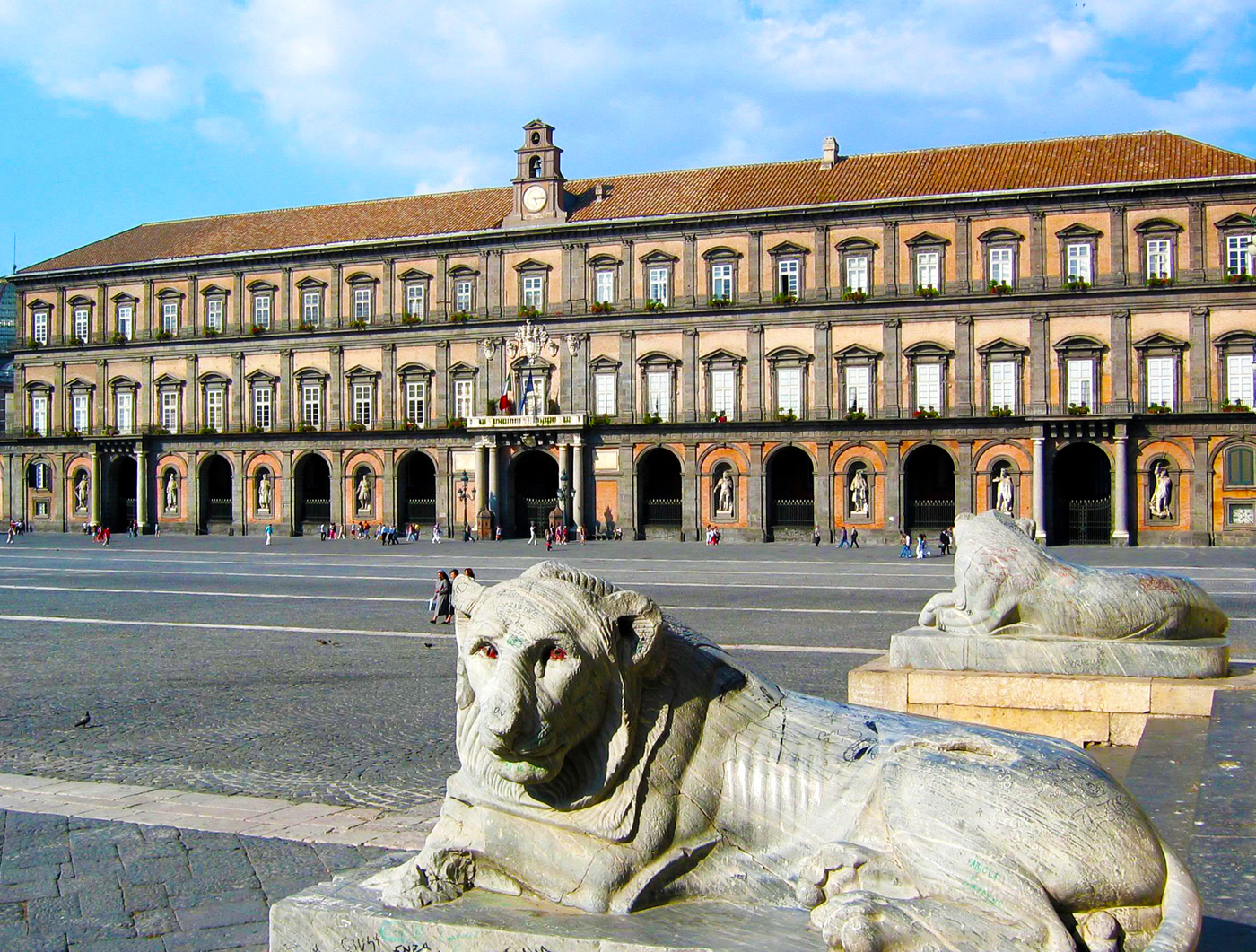
The Royal Palace of Naples is a historic building located in Piazza del Plebiscito, in the historic center of Naples, where the main entrance is located: the entire complex, including the gardens and the San Carlo Theater, also overlooks Piazza Trieste and Trento, Piazza del Municipio and via Acton.
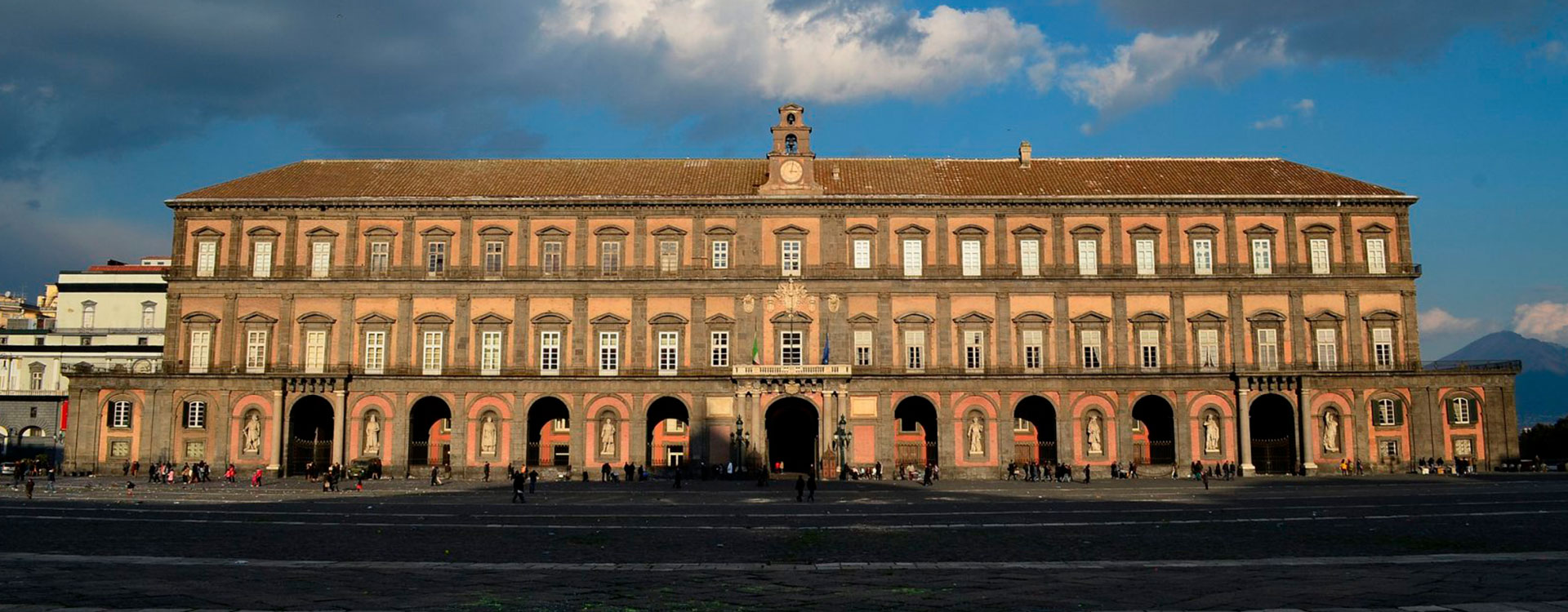

It was the historic residence of the Spanish viceroys for over one hundred and fifty years, of the Bourbon dynasty from 1734 to 1861, interrupted only for a decade at the beginning of the nineteenth century by French rule with Giuseppe Bonaparte and Gioacchino Murat, and, following the Unification of Italy, of the Savoys.

Ceded in 1919 by Vittorio Emanuele III of Savoy to the state property, it is mainly used as a museum center, in particular the Royal Apartments, and is home to the National Library.
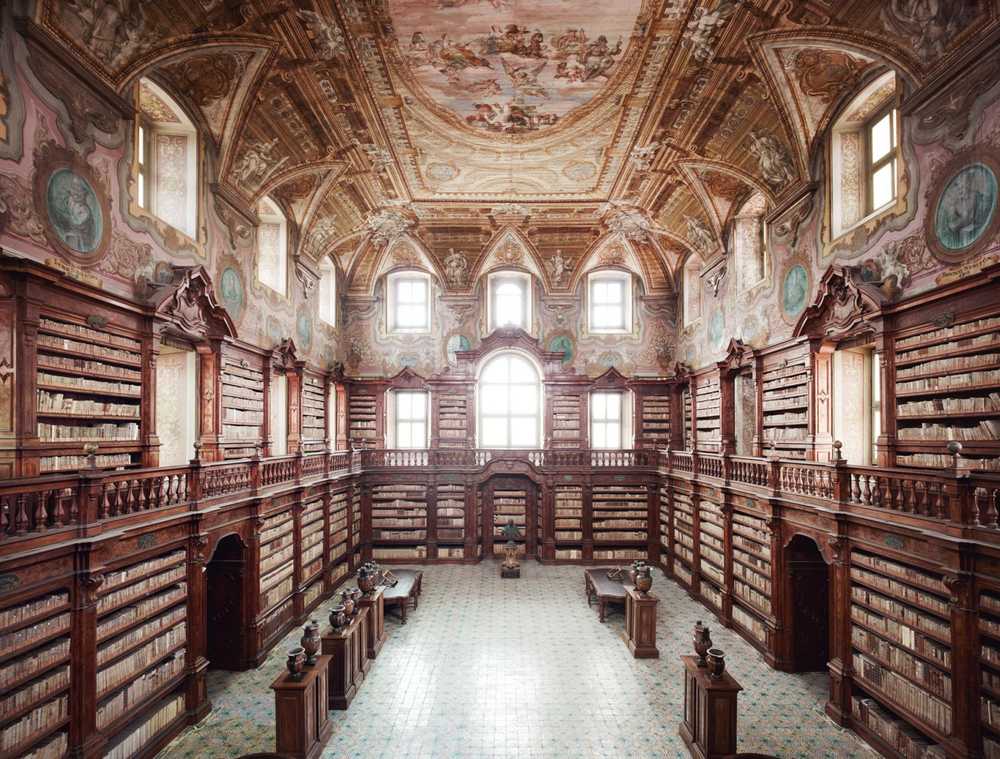
On the main floor of the building, the oldest part of the entire building, is the Royal Apartment, where the Austrian and Spanish Viceroys (1600-1734) and the Bourbon kings (1734-1860) resided.

(Come in to see it with the Immersive Reality from here)
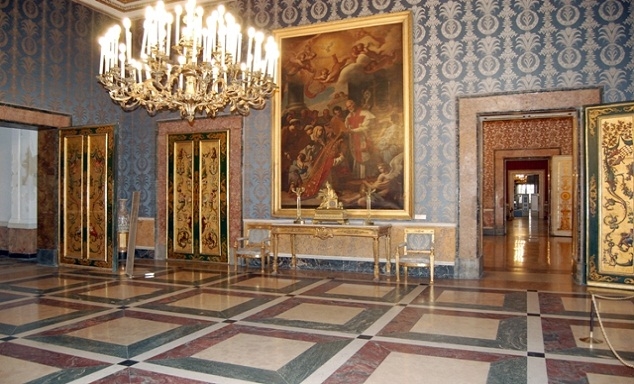
The Great Label Apartment, restored by Ferdinand of Bourbon, has been open to the public since 1919 and can be reached through the majestic Honor Staircase (also called the Monumental Staircase) which leads to the ambulatory or glazed loggia on the first floor.
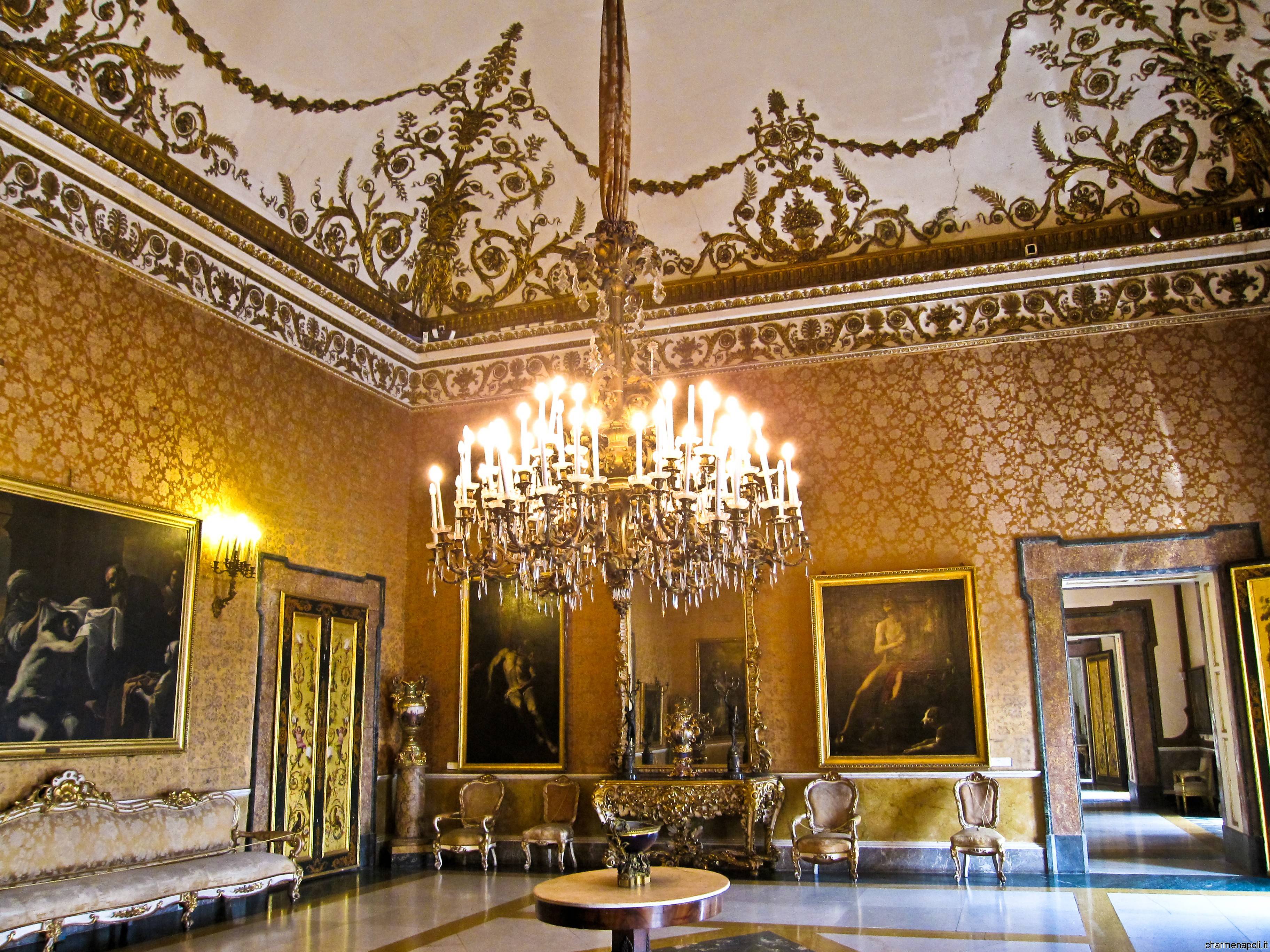
The Monumental Staircase itself is a posthumous work, relatively young compared to the whole structure; it was designed as it can be seen by the architect Gaetano Genovese immediately after the unfortunate fire of 1837 which destroyed a large part of the Neapolitan palace.

While, the material executor of the project for the Monumental Staircase was completed by Francesco Gavaudan only and only in 1858.
(Enter to see it from here)
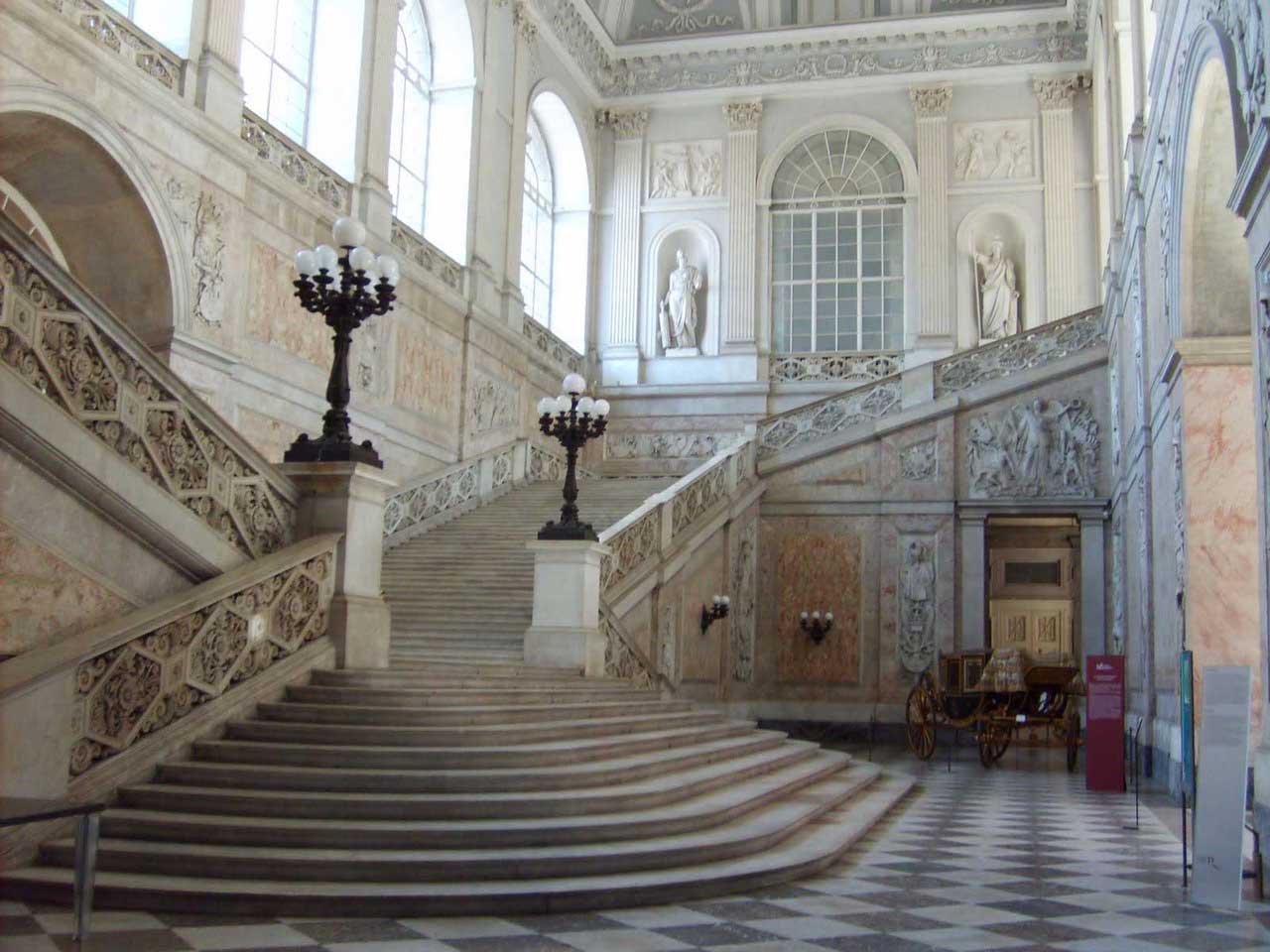
The Royal Palace was built starting from 1600, to reach its final appearance in 1858: numerous architects such as Domenico Fontana, Gaetano Genovese, Luigi Vanvitelli, Ferdinando Sanfelice and Francesco Antonio Picchiatti participated in its construction and related restoration works.
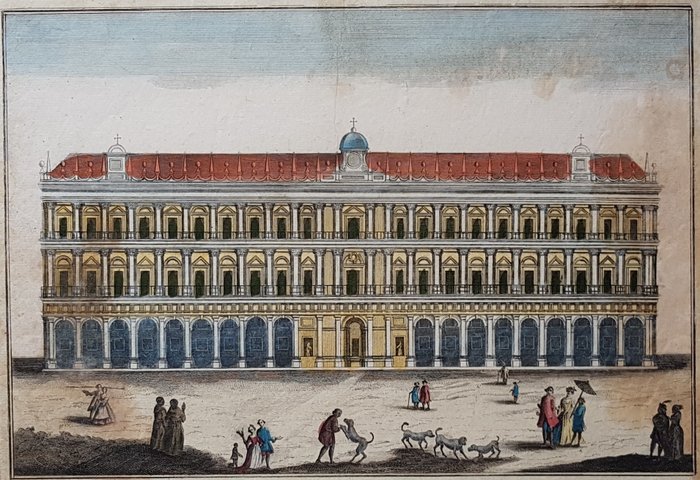
At the end of the Aragonese domination, the Kingdom of Naples entered the expansionist aims of both the French and the Spanish: the two parts divided the territory following the Treaty of Granada signed in 1500.
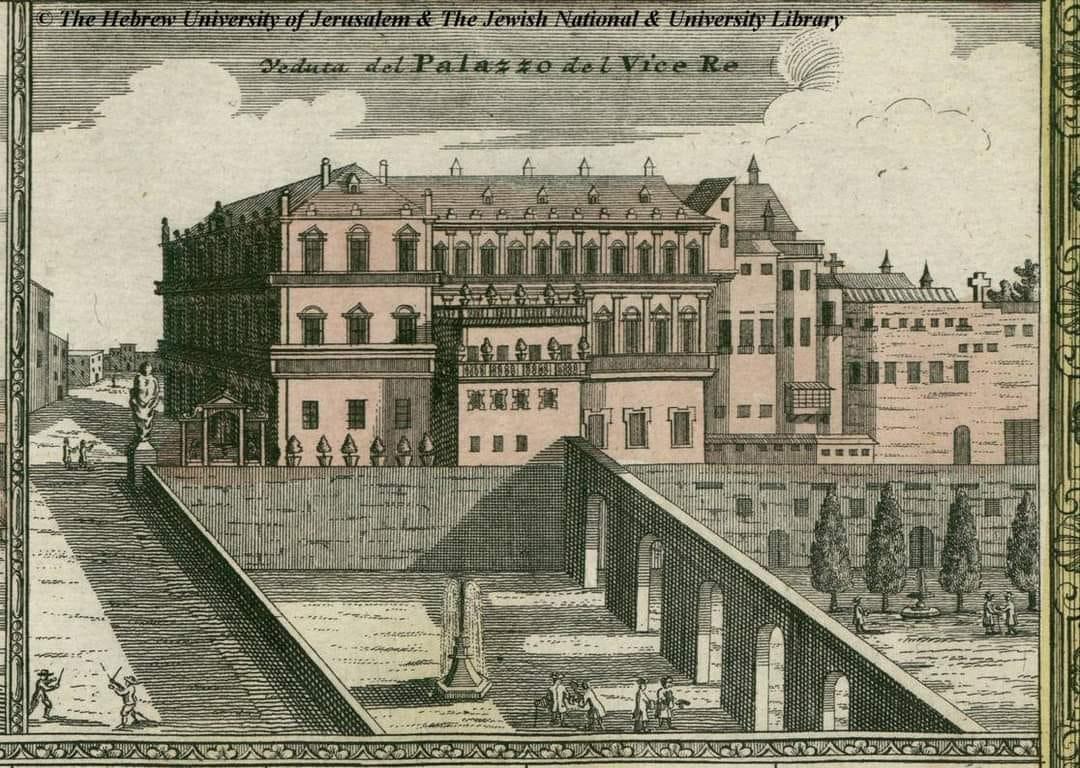
However this was not respected and under the Grand Captain Gonzalo Fernández de Córdoba the Spaniards conquered the kingdom in 1503: the Spanish viceroyalty began.


This period, which affected Naples for over two hundred years, is historically seen as a dark and regressive period: vice versa the city enjoyed a remarkable cultural ferment and a dynamic bourgeoisie, as well as a cutting-edge merchant fleet capable of competing with Seville and Flanders.
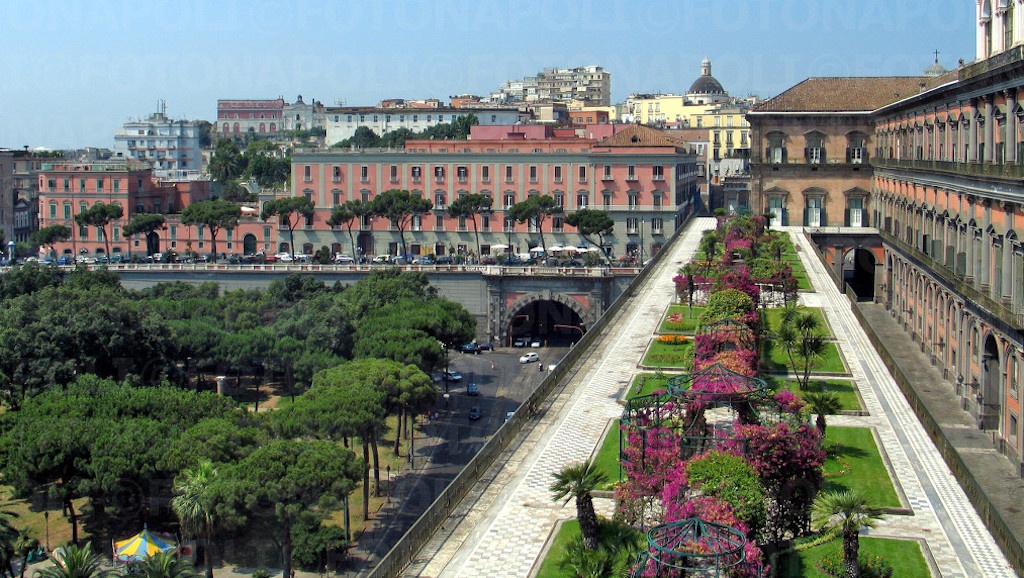
(Come in and see the Inner Court with the Immersive Reality from here)
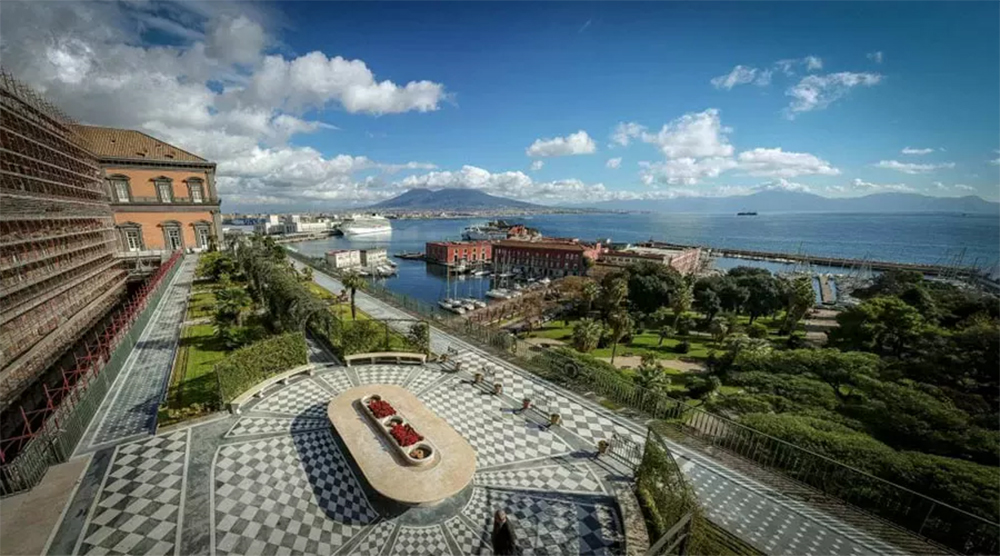
Under Pedro Álvarez de Toledo y Zúñiga it was decided to build a Viceroyal palace: designed by the architects Ferdinando Manlio and Giovanni Benincasa, the works began in 1543 and ended shortly thereafter.

The construction of the Viceroy palace took place in a period in which the viceroys engaged in an urban reorganization of the Italian cities: in Naples the walls and forts were reorganized, and the so-called Spanish Quarters were built.

The Court Theater and the plan of the entire complex.
(Enter to see it from here)

The Royal Chapel, dedicated to Our Lady of the Assumption, was built by Francesco Antonio Picchiatti (Naples 1619-1694) and set up between 1643 and the end of the seventeenth century.

The current environment derives from the decorative architectural arrangements of the nineteenth century and from post-war restorations.
(Enter to see it from here)

The history of the statues of the Royal Palace:
"Who peed on the floor?""I don't know anything about it"
"It was me, so what?"
Drawing the sword: "Let's avoid it!"

No, it is not the script of a comic film, but the story that has been attached to the statues that appear in the niches of the Royal Palace of Naples.

A way also to remember, in a nice way, the names that represent, respectively, Charles V of Habsburg, Charles III, Joachim Murat and Vittorio Emanuele II; in this speech, the other 4 personalities appearing from the left are missing, namely those of Roger the Norman, Frederick II of Swabia, Charles I of Anjou and Alfonso V of Aragon: each, in short, is called to identify a sovereign and, of the 8 that appear, 7 were right on the throne of the Neapolitan city.
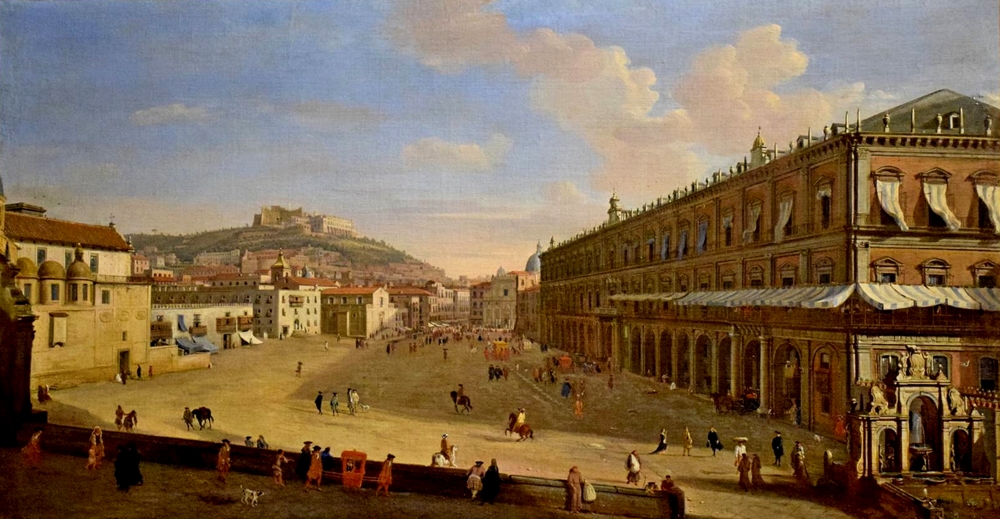
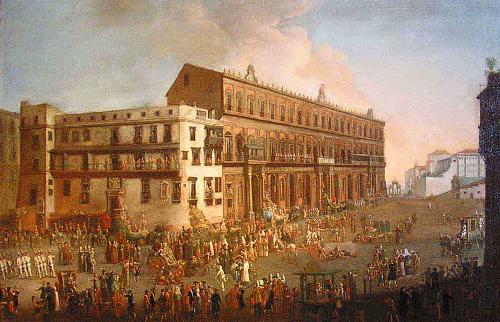

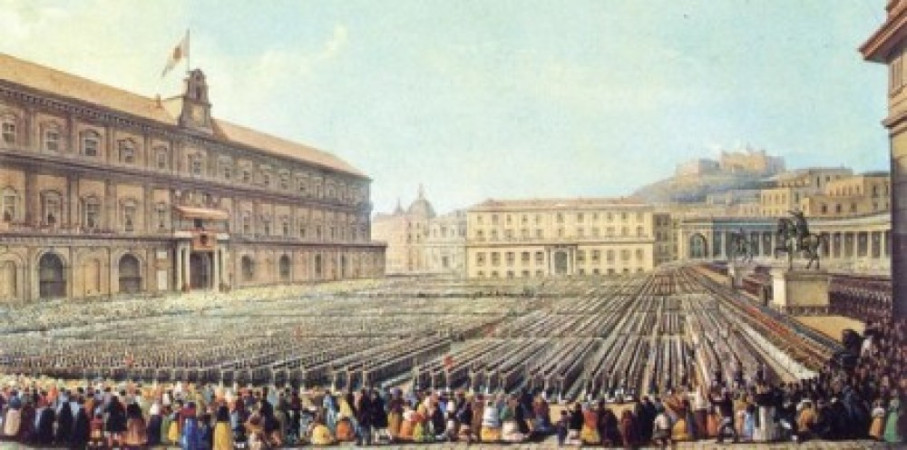

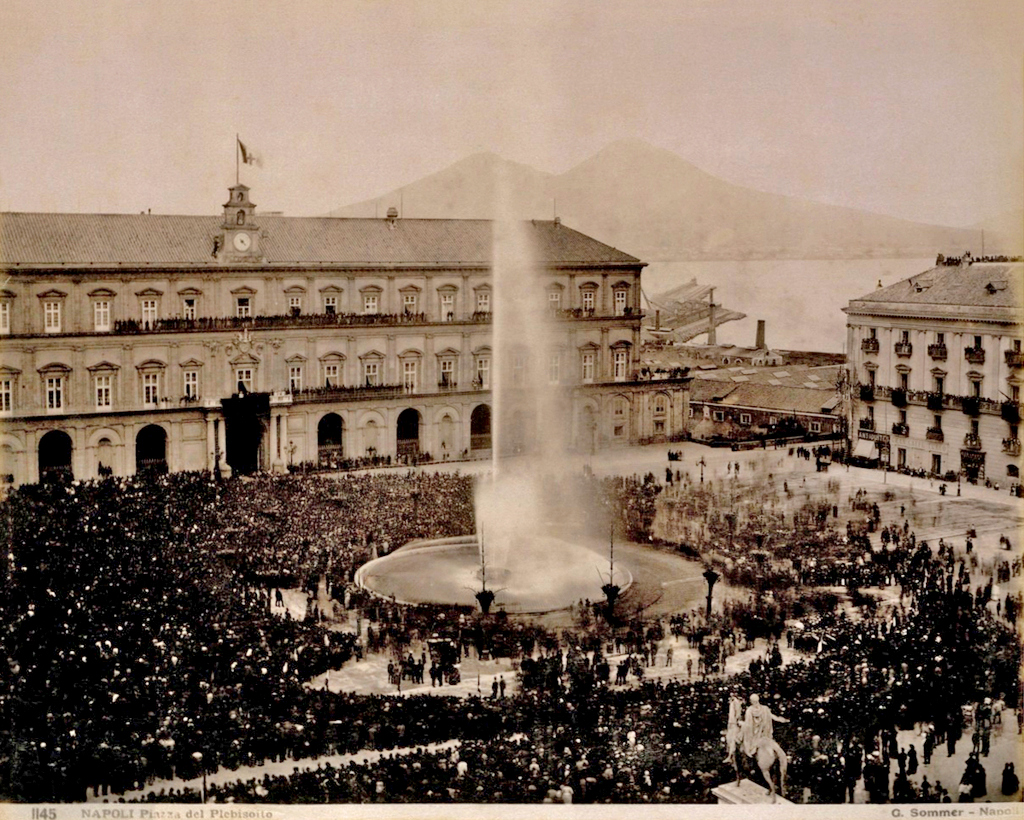
Video: Royal Palace of Naples - Virtual Tour 360°
Map: Royal Palace of Naples - Virtual Tour 360°
Address: Piazza del Plebiscito, 1, 80132
Napoli (NA) Campania
Latitude: 40.8365129
Longitude: 14.2504585
Site: palazzorealenapoli.it...
vCard created by: CHO.earth
Currently owned by: 00002676
Type: Building
Function: Museum
Creation date: 28-01-2020 04:50
Last update: 02/12/2021
vCard Value: $7,50
vCard Views: 2658